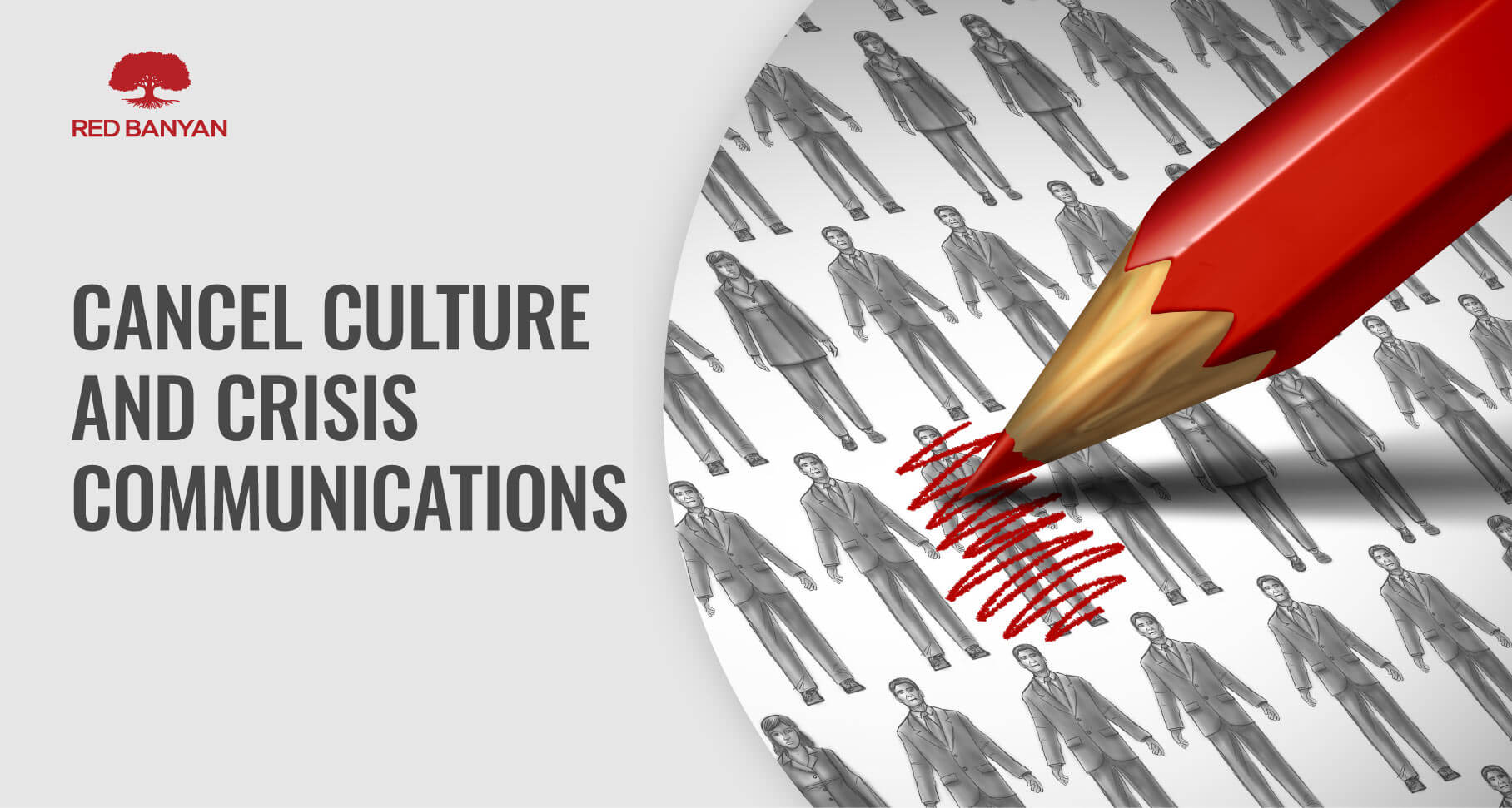Cancel Culture and Crisis Communications
October 17, 2023 | Category: Blog, Cancel Culture, Crisis Communications Florida, Crisis PR

Silencing someone who expresses an opinion or viewpoint that you don’t share is at the heart of cancel culture. Trying to shut down someone’s brand or voice because you disagree with their views is a troubling dynamic that is especially dangerous because it could happen to you.
Cancel culture is commonly associated with the rich and famous but in truth anyone can be targeted. Rich and powerful people are just better positioned to weather an online attack than regular citizens. An online attack can crop up at a moment’s notice and quickly spiral into a full-blown online disaster in hours if damaging content is repeatedly shared, even if it is false.
Who Does Cancel Culture Affect?
If you think that cancel culture affects only large corporations or A-list celebrities, then think again. In fact, it is the average person who is most at risk. Everyone makes mistakes and is therefore in danger of being struck down by cancel culture, no matter your background, profession or political beliefs.
Everyone loves a good comeback story, but in 21st century America, it is increasingly difficult to rebound once you take a fall. The problem with cancel culture is that the mob mentality of this phenomenon acts as judge, jury and executioner for the targeted individual. While all persons found guilty of offenses and crimes should face con- sequences, we also believe that every accused American should continue to enjoy the right to due process and a presumption of innocence. Mob justice must never become a preferred, acceptable, method for silencing or punishing those with whom we disagree.
Criticizing or vilifying someone’s beliefs, actions or brand online can also be done with anonymity, empowering the attackers to leverage a level of brutality and intolerance that in some instances can be career-ending, even if the allegations that are shared online prove to be false.
What is a Cancel Culture Attack?
This ugly dynamic creates the need for a kind of crisis communications that specifically focuses on cancel culture crises and the accompanying problems that come with a relentless cancel culture attack.
Supporters of the cancel culture phenomenon believe it is a way to leverage accountability, and it may well be a way to capture the attention of the rich and famous and stop them in their tracks. But the wealthy and powerful have the means and influence to fight back. They can hire lawyers, influencers or crisis communications advisors to make sure their side of the story is told and to possibly go after those who drummed up the online mob attacks against them.
Unfortunately, regular citizens often find themselves the target of cancel culture and are subjected to terrifying accusations and punitive actions against their businesses, families or brands with no effective way to fight back.
Professional crisis communications experts like those at Red Banyan have years of experience dealing with cancel culture vultures and know what to do when someone finds themselves the victim of a vicious online attack. Cancel culture crisis PR is tailored to address the reputation-smearing nature of cancel culture. Our team of reputation repair crisis communications experts will review your social media for damaging posts and help you press the truth about your situation, so you get your side of the story out in the way you want it told.
Why is Cancel Culture Problematic?
One of the biggest problems with cancel culture is that many of the cancel vultures never pause to consider the enormous problems their posts may be causing. Often, they share “facts” that are false as truth, which fires up the online community creating even more outrage that multiplies exponentially as the lies snowball.
The anonymity of the internet emboldens accusers, who say things online they might never say in person. Some view cancel culture as a necessary tool for holding powerful people accountable and mobilizing the masses to ensure that those in positions of influence can’t get away with whatever they wish. Others view cancel culture as a political weapon used to silence anyone, even those who are involved in verifiable scandals or crimes.
But neither view takes into consideration the harm cancel culture can cause to regular people who make honest mistakes or hold unpopular viewpoints.
The fallout from cancel culture can be daunting because online “witch hunts” arise quickly, the charges are often false or fabricated, the response is often disproportionately huge and is extremely judgmental.
Red Banyan’s crisis PR and cancel culture experts know how to recognize a cancel culture attack and have the experience to determine the most effective way to curtail the attack and stave off any damage.
Contact Red Banyan’s cancel culture experts to find out how they can help with an online mob attack.
Questions:
What does it mean if someone is cancelled?
To cancel someone — often a celebrity or other well-known figure — means to stop giving support to that person. The act of canceling could entail boycotting an actor’s movies or no longer reading or promoting a writer’s works.
What is the trauma of cancel culture?
Being canceled can lead to anxiety, depression, trauma, and in extreme cases, suicidal thoughts and behavior. Cancellations can lead to social ostracism, affect work relationships, and stir up rage that can be emotionally and personally threatening.
Why is cancel culture is harmful?
Young adult victims of cancel culture, or those who experienced social cancellation as teens, may struggle for years to trust themselves, to trust others, and to feel a sense of belonging in a peer group. The harmful effects of cancel culture also extend to the cancelers and the bystanders.

